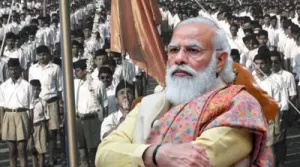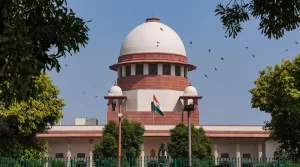The Assam Cattle Preservation Bill, 2021 seeks to regulate the trade in cattle, their slaughter and the sale and purchase of beef in the state. Yet, in the era of Hindutva ascendancy, the Bill has spawned anxiety, apart from Assam, in six of the eight Northeast states—Meghalaya, Arunachal Pradesh, Mizoram, Nagaland, Manipur and Tripura.
These states feel Chief Minister Himanta Biswa Sarma’s passion to protect the cow will lead to the supply of beef falling short of the demand—and its price soaring. Their anxiety arises from the peculiar geography of the Northeast—the route of supply of cattle to the six states passes through Assam.
Although Sarma’s legislative measure allows inter-state movement of cattle subject to transporters and traders securing a “valid permit” from the government, it is widely feared his Cattle Preservation Bill, 2021 will give a fillip to vigilantism and turn the cattle trade into a perilous profession. This fear was articulated by Meghalaya Chief Minister Conrad Sangma: “We will raise the issue not only with the Assam government but also the Centre if the law affects transit of cattle to Meghalaya from other states.”
Generous Warlarpih, the general secretary of Meghalaya’s Khasi Jaintia Butchers Association, said Guwahati and Shillong have been reporting beef shortages. “In fact, it is slowly becoming a rare commodity in Guwahati especially,” he said, pointing out that Meghalaya sources 90% of its beef from other states through Assam.
A substantial segment of the Northeast’s population is widely known to savour their pork and beef. Yet statistics on beef consumption in India is hard to get. Academics extrapolate from National Sample Survey Office reports to provide an estimate of the consumption pattern. A January 2019 paper, published in the Indian Journal of Animal Sciences, claimed that about 1.89 lakh cattle were slaughtered annually in Meghalaya in the last few years. Around 40% of these cattle came into the state from outside.
Sumit Mahajan, Janalin S. Papang and K.K. Datta, in the Indian Journal of Animal Sciences, calculated that the eight Northeast states accounted for 9.98% of India’s total beef consumption in 2009-10. The Northeast states, in 2011, constituted just 3.77% of India’s total population, testifying to the widespread consumption of beef among those other than Hindu. The consumption will likely have grown than diminished.
It may seem plain paranoia that Assam’s Cattle Preservation Bill, 2021 could deprive the people of other Northeast states of their beef delicacies and, therefore, interfere with their cultural identity. Yet it is also true that the Bill’s intent is palpably religious. This turns its objective of regulating cattle slaughter into an imposition on those for whom beef is integral to their food habits.
The Sarma government justifies the need for the Cattle Preservation Bill, 2021 by invoking Article 48 of the Constitution. Art 48 advocates the prohibition of slaughter of “cow, calves, and other milch and draught cattle” to organise agriculture and “animal husbandry on modern and scientific lines.”
Art 48 does not propose a ban on cattle slaughter on the grounds of religious sentiments and beliefs. In fact, the Assam Cattle Preservation Act, 1950, which will be superseded by the 2021 Bill once it becomes law, does not explicitly invoke religion. For instance, it does not exclude cows above 14 years from slaughter and allows “slaughter of any cattle [of any age] on the occasion” of Id-ul-Zuha or Bakr Id.
By contrast, the 2021 Bill invokes religion—and is, therefore, in violation of Article 48. For one, the Bill disallows the slaughter of even cows above 14 years of age or unfit for work or breeding or incapacitated. It is hard to figure out how an ailing, old cow can help organise animal husbandry on scientific lines.
For the other, the 2021 Bill bans the sale, purchase or display of beef in areas predominantly inhabited by Hindus, Sikhs, Jains or other “non-beef eating communities”, and also within the radius of five kilometres of a temple, satra (Vaishnavite monastery) and other religious institutions. There is no rational basis for imposing the five-km restriction, for beef can neither be seen nor smelt from a distance of even one kilometre.
These provisions of the Bill make it ultra vires the Constitution.
Read these provisions along with another that prohibits, quite understandably, the slaughter of cattle (other than cows, calves and heifers) outside licenced or designated places. It becomes amply clear that Assam will barely have any space other than meat factories where cattle can be slaughtered—and beef sold and purchased. An indirect ban on cattle slaughter will operate in Assam.
The 2021 Bill is an outcome of the Sangh Parivar raising the pitch on cow slaughter as a religious issue, eloquently symbolised by horrific incidents of lynching. In May 2017, three years after Narendra Modi became Prime Minister, Assam registered its first case of lynching. In Nagaon, about 125 km from Guwahati, two Muslim men were beaten to death on the suspicion that they were involved in cow theft. Three months later, in Sonapur, near Guwahati, a radical Hindu group assaulted the drivers of three vehicles ferrying cattle.
In April 2019, an elderly Muslim man in Biswanath Chariali city was badly beaten up and forced to eat pork because he sold beef from his restaurant, which his family had been doing for 35 years. In June 2021, a 28-year-old man was lynched in the Tinsukia district on the suspicion that he was a cow thief. His name: Sarat Moran.
The provisions of the 2021 Bill will give a fillip to these tendencies and dissuade people from engaging in the cattle trade. For instance, under the 1950 Act, a person could be sentenced to six months in jail and fined up to Rs.1,000. A person convicted under the 2021 Bill can be jailed between three and eight years and fined between Rs.3-5 lakh. The punishment would be doubled in case he repeats the offence.
Worse, bail for a person accused of violating the 2021 Bill will be at the court’s discretion. He will languish in jail until the court grants him bail.
The cost and risk of engaging in the cattle trade will go up. A person accused of transporting cattle without a valid permit can have his vehicles and animals impounded. Likewise, designated officers are allowed to enter premises and seize vehicles and animals in case he thinks an offence under the Bill is likely to be committed.
Such provisions have been perceived as future tools to harass Muslims, who are the predominant consumers of beef in Assam and participate in the cattle trade. For instance, while impounded vehicles can be released by providing sureties equal to their value, the seized cattle will have to be sent to gaushalas, which will bill the accused for their upkeep. If convicted, the vehicles and the cattle will become the state government’s property.
Section 18 of the 2021 Bill states, “No suit, prosecution or other legal proceeding shall be instituted against any person for anything which is in good faith done or intended to be done under this Act or the rules made here under.” This provision has been borrowed verbatim from the 1950 Act. Such provisions are generally included in legislative enactments to protect public servants from legal prosecution.
Such is the ambience in Assam that, many say, even though tongue-in-cheek, that section 18 should be amended to replace “any person” with “any public servant”, for the activities of Hindu vigilante groups can be interpreted to have been done in “good faith” to implement the objective of the 2021 Bill—and its principal architect Himanta Biswa Sarma.
This telling example of black humour tells you why the 2021 Bill will likely hurt cattle trade in the Northeast, reduce consumption of beef not only in Assam but in other states in the region as well, and provide one more reason for the people to feel alienated from New Delhi. Indeed, beef could well become a hot-button inter-state or federal issue in the months to come.
(The author is an independent journalist. Article courtesy: Newsclick.)




